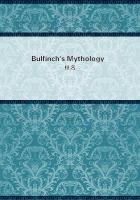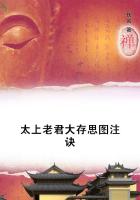It was a morning of early March, and Michael, looking out from the dining-room window at the house in Curzon Street, where he had just breakfasted alone, was smitten with wonder and a secret ecstasy, for he suddenly saw and felt that it was winter no longer, but that spring had come. For the last week the skies had screamed with outrageous winds and had been populous with flocks of sullen clouds that discharged themselves in sleet and snowy rain, and half last night, for he had slept very badly, he had heard the dashing of showers, as of wind-driven spray, against the window-panes, and had listened to the fierce rattling of the frames. Towards morning he had slept, and during those hours it seemed that a new heaven and a new earth had come into being; vitally and essentially the world was a different affair altogether.
At the back of the house on to which these windows looked was a garden of some half acre, a square of somewhat sooty grass, bounded by high walls, with a few trees at the further end. Into it, too, had the message that thrilled through his bones penetrated, and this little oasis of doubtful grass and blackened shrubs had a totally different aspect to-day from that which it had worn all those weeks. The sparrows that had sat with fluffed-up feathers in corners sheltered from the gales, were suddenly busy and shrilly vocal, chirruping and dragging about straws, and flying from limb to limb of the trees with twigs in their beaks. For the first time he noticed that little verdant cabochons of folded leaf had globed themselves on the lilac bushes below the window, crocuses had budded, and in the garden beds had shot up the pushing spikes of bulbs, while in the sooty grass he could see specks and patches of vivid green, the first growth of the year.
He opened the window and strolled out. The whole taste and savour of the air was changed, and borne on the primrose-coloured sunshine came the smell of damp earth, no longer dead and reeking of the decay of autumn, but redolent with some new element, something fertile and fecund, something daintily, indefinably laden with the secret of life and restoration. The grey, lumpy clouds were gone, and instead chariots of dazzling white bowled along the infinite blue expanse, harnessed to the southwest wind. But, above all, the sparrows dragged straws to and fro, loudly chirruping. All spring was indexed there.
For a moment Michael was entranced with the exquisite moment, and stood sunning his soul in spring. But then he felt the fetters of his own individual winter heavy on him again, and he could only see what was happening without feeling it. For that moment he had felt the leap in his blood, but the next he was conscious again of the immense fatigue that for weeks had been growing on him. The task which he had voluntarily taken on himself had become no lighter with habit, the incessant attendance on his mother and the strain of it got heavier day by day. For some time now her childlike content in his presence had been clouded and, instead, she was constantly depressed and constantly querulous with him, finding fault with his words and his silences, and in her confused and muffled manner blaming him and affixing sinister motives to his most innocent actions. But she was still entirely dependent on him, and if he left her for an hour or two, she would wait in an agony of anxiety for his return, and when he came back overwhelmed him with tearful caresses and the exaction of promises not to go away again. Then, feeling certain of him once more, she would start again on complaints and reproaches. Her doctor had warned him that it looked as if some new phase of her illness was approaching, which might necessitate the complete curtailment of her liberty; but day had succeeded to day and she still remained in the same condition, neither better nor worse, but making every moment a burden to Michael.
It had been necessary that Sylvia should discontinue her visits, for some weeks ago Lady Ashbridge had suddenly taken a dislike to her, and, when she came, would sit in silent and lofty displeasure, speaking to her as little as possible, and treating her with a chilling and awful politeness. Michael had enough influence with his mother to prevent her telling the girl what her crime had been, which was her refusal to marry him; but, when he was alone with his mother, he had to listen to torrents of these complaints. Lady Ashbridge, with a wealth of language that had lain dormant in her all her life, sarcastically supposed that Miss Falbe was a princess in disguise ("very impenetrable disguise, for I'm sure she reminds me of a barmaid more than a princess"), and thought that such a marriage would be beneath her. Or, another time, she hinted that Miss Falbe might be already married; indeed, this seemed a very plausible explanation of her attitude. She desired, in fact, that Sylvia should not come to see her any more, and now, when she did not, there was scarcely a day in which Lady Ashbridge would not talk in a pointed manner about pretended friends who leave you alone, and won't even take the trouble to take a two-penny 'bus (if they are so poor as all that) to come from Chelsea to Curzon Street.















